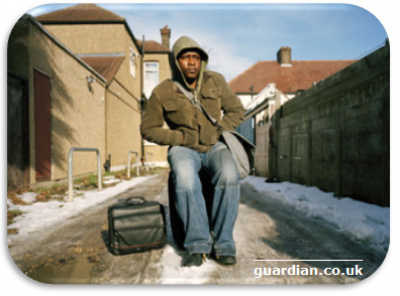 Published: 20 January 2012
Published: 20 January 2012
Region: European Union
By Pedja Urosevic

Media reporting on the rights of asylum seekers and other vulnerable groups in Europe has always been driven by politics and particularly by the anti-immigrant agenda of right wing groups in countries like Britain, Hungary and Austria. Now the challenge facing journalists is even greater following a call by European Union leaders for faster action to process asylum cases.
This may clear the weight of numbers that some countries feel is growing too large, but it also threatens to limit public scrutiny of the way people are dealt with and may increase the scope for maltreatment of refugees and people living in exile.
The correlation between deteriorating human rights in times of economic crisis and austerity is proven empirically, and things may get worse in the development of EU policy on asylum seekers and plans for 2012.
For instance, Melchior Wathelet, Belgian Secretary of State for Migration and Asylum, stressed the need for EU countries to speed up the way they handle asylum cases. As the chair of the European Ministerial Conference on ‘Quality and Efficiency in the asylum process’ on 13 and 14 September in Brussels he said:
‘The asylum process should guarantee high protection standards corresponding to the EU’s fundamental values and at the same time an efficient decision-making system should be established to ensure correct decisions, positive or negative, in the shortest possible time.’
The important part of this classic example of Brussels double-speak is the phrase ‘in the shortest possible time’. This defines in a nutshell the political objective of most European countries – to get asylum seekers out of their hair as fast as possible.
But this call for speed may come at the expense of humanity and a fair hearing for people seeking asylum. The United Nations policy says that ‘Asylum seeker describes someone who has applied for protection as a refugee and is awaiting the determination of his or her status.’ There is no reference to the length of the process.
The evidence is that when the process is speeded up, abuse is more likely to occur. According to data from Institute of Race Relations (IRR), since 2010 the process of speedier removals of asylum seekers from EU have been accompanied by the increased use of force, as well as measures that both deny asylum seekers access to justice and limit the ability of independent oversight.
According to data from Institute of Race Relations (IRR), since 2010 the process of speedier removals of asylum seekers from EU have been accompanied by the increased use of force, as well as measures that both deny asylum seekers access to justice and limit the ability of independent oversight.
According to this report already in 2010 ‘the acceleration of the deportation rate has been accompanied by move to make…legal interventions in the name of asylum seekers more difficult’.
Regrettably there is little mention of this in the mainstream media; while on the other hand, there are more dramatic readings of controversial immigration reports in Britain.
What we don’t see in the mainstream media so often is the human side of the asylum seeker stories. But this is being reported by civil society groups such as the Red Cross.
Two years ago they published the report ‘Not gone, but forgotten’ with self-explanatory Sub-headline ‘The urgent need for a more humane asylum system’, covering human side of the stories of asylum seekers.
Media representation of asylum seekers very rarely allows the authentic voice of refugees to be heard on matters of policy. When they do appear in mainstream media it is too often in the stereotype of passive victims of people trafficking or other horror stories of illegal migration.
Tragically, when news reporting does pick up on asylum seekers, it is often when it is probably too late to help as in a recent case when the UK Border Agency’s made a decision to deport a Cameroonian playwright and her husband.
The Brussels call for speed in dealing with asylum cases may satisfy a right-wing political agenda, but media should be testing whether it will compromise justice and humanity in meeting the obligations that countries have under international law.
Edited on 28 January 2012: